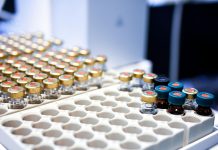
Radon gas is a colorless, odorless, radioactive gas that is produced by the natural breakdown of uranium in soil, rock, and water. It has been linked to an increased risk for lung cancer. Radon gas can enter your home from the soil through cracks in floors or walls and accumulate. The higher levels of radon gas found inside homes may result from local geological conditions, such as bedrock with high concentrations of radioactive materials like uranium or thorium. Therefore, it is necessary to check and do radon and water treatment in New Jersey periodically to protect yourself from radon’s harmful effects.
How Does Radon Gas Affect Your Health?
Many people assume that the gas is harmless. However, radon gas can be dangerous to your health due to its ability to permeate into your home and its tendency to accumulate inside your body.
The primary route of exposure to radon gas is breathing it in, which occurs through the air you breathe or by ingesting contaminated food or water. Radon gas enters the human body primarily through inhalation of small particles released from soil during weathering and through water containing radium at high concentrations.
Radon transpires out of the ground after coming into contact with air and can get into a home through cracks in floors or walls or through water from wells, such as private wells where uranium mining and drilling occurred. If your house possesses higher Radon levels, then you might be at the risk of developing lung cancer. There is no cure for lung cancers, but they can be treated if detected at an early stage.
Radon gas poses a serious threat to the health of you and your family. If you are concerned about Radon Gas, then you should start the radon testing process immediately. You can seek Radon treatments to protect yourself from radon’s harmful effects. Radon treatments involve the installation of a radon mitigation device in your home to reduce radon levels and maintain safe levels of radon gas.
The U.S. Environmental Protection Agency (EPA) and the New Jersey Department of Environmental Protection (NJDEP) recommend that all homes should be tested for radon gas because it is the leading cause of lung cancer among non-smokers in the United States. Therefore, ensure that your home is equipped with an effective radon mitigation system. These devices can be installed by a typical HVAC contractor who specializes in radon mitigation. In the event that you use the services of a company, ensure that it is qualified for radon mitigation before availing of its services.










